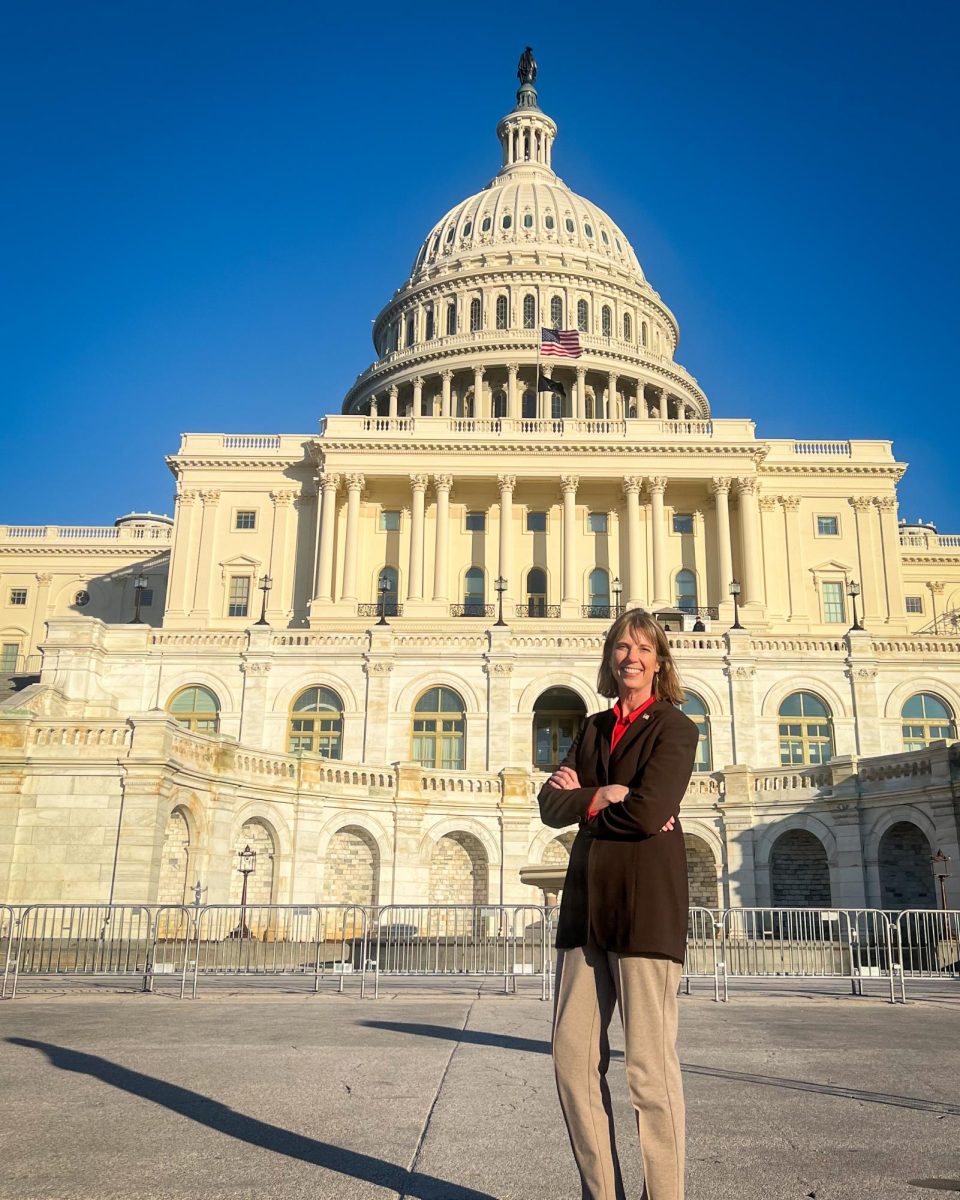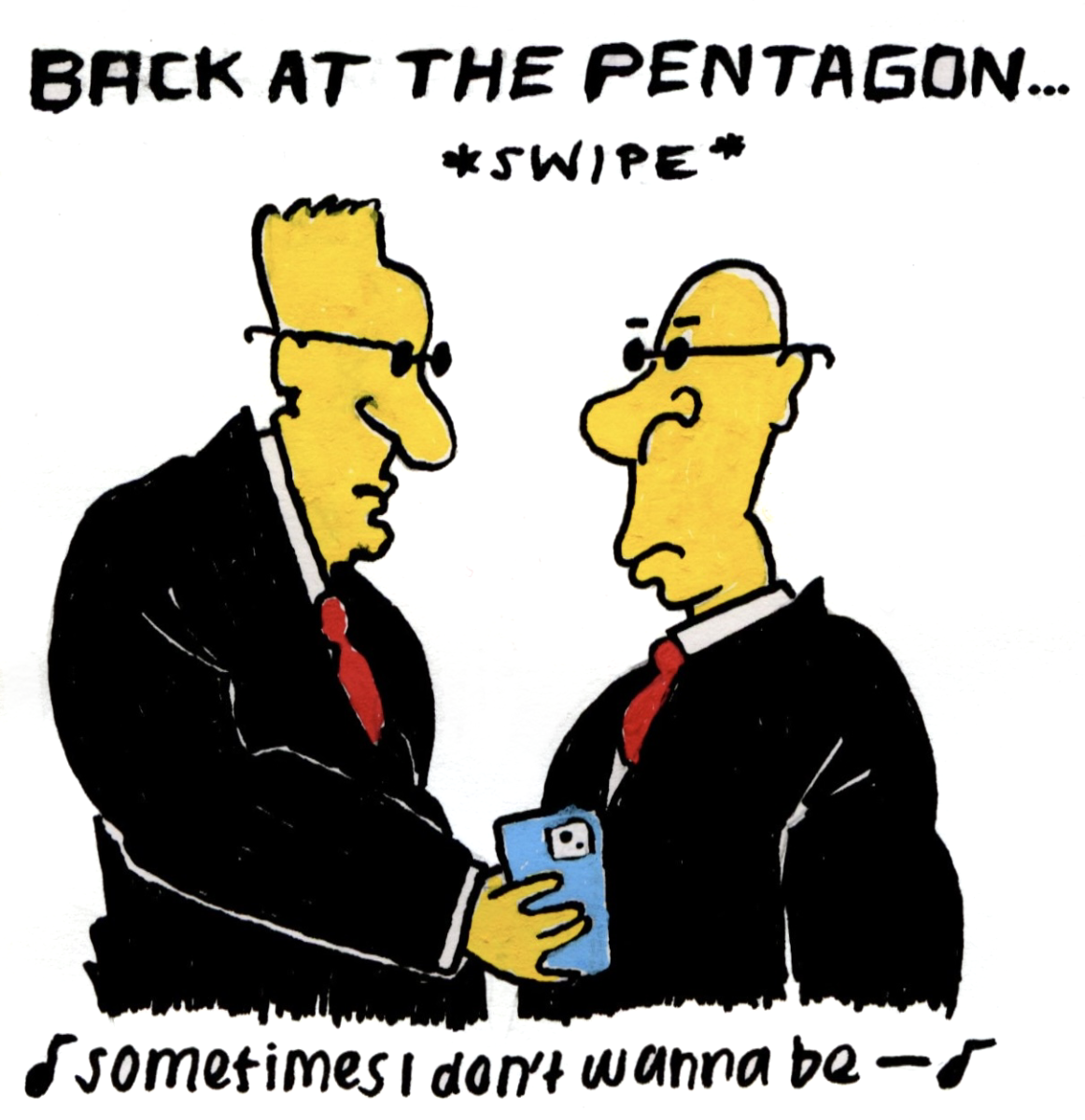Early Friday morning, Feb. 20, sophomore Paul Butler was accosted by three assailants on his walk home from Penrose Library. He was walking towards the Sigma Chi fraternity house around 3 a.m. when he spotted three figures approaching him from Isaacs Avenue between the Science Building and Olin Hall.
“One guy threw a gang sign and said, ‘Hey, what’s up?’ and then they rushed at me,” said Butler.
Butler described the men as Latino and in their mid-20s. He attempted to fend off an attack by throwing a textbook at the men but they were undeterred.
Punches were thrown, but Butler was able to defend himself. He managed to outrun them to the Science Building, at which point he called the Walla Walla Police Department. According to Butler, the men fled towards Isaacs Avenue.
According to Dean of Students Chuck Cleveland, the Police Department sent four to five units to patrol the area but they were unable to locate any suspects. The Police Department, however, did not notify campus security or Cleveland of the assault that evening.
Whitman security became aware of the attack around 5 a.m. when the Welty Health Center alerted them that they were treating Butler for minor injuries sustained from the assault. Cleveland was informed of the attack at 8 a.m.
Unlike previous campus assaults, the Whitman community received no email notification of Butler’s attack. According to Cleveland, the reason for this was that given the delay in notification the assault was no longer considered “timely” and thus did not merit a campus alert.
This was not the first time Butler has been assaulted on campus. Earlier in the semester, on the evening of Friday, Jan. 23, Butler was assaulted by two men near the tennis courts. In response to this attack, Cleveland arranged for the tennis courts lights to be left on Friday and Saturday nights.
“We’ve been turning the lights on at night, we’ve been asking students to be more careful at night –– which I think, by and large, has been happening –– and residence halls are locked,” said Cleveland of the security measures the college has taken.
Due to budget cuts, the college was unable to hire an additional security officer upon a previous year’s request. Cleveland has made an additional request in light of the recent incidents. However, he emphasized that the college is currently adequately patrolled by Whitman security.
“It’s not like the campus isn’t covered, it’s covered. There are dual officers on during what would be considered to be the busiest hours,” he said.
Given the increase in student assaults over the course of the school year, the ASWC Student Affairs Committee has directly involved itself in increasing campus safety.
“It was becoming clear that security is an ongoing concern at Whitman in a way it wasn’t previously and it needed to be addressed. I felt that there was room for the student government to improve things,” said ASWC Vice-President and Chairman of the Student Affairs Committee senior Roman Goerss.
“I think the administration could be moving faster and more effectively. I haven’t seen a lot of new initiatives or action coming out of the administration, that I’m personally aware of,” said Goerss of the college’s response to the increase in student assaults on campus.
The Student Affairs Committee has spent much of this semester researching security at Whitman through conversations with Whitman security, the Walla Walla Police Department, Associate to the President Jed Schwendiman and Cleveland. They also issued a survey regarding campus security to the Whitman student body, from which they received approximately 180 responses.
From this information, the Committee compiled a memorandum that addressed Whitman’s current state of security.
Their research found that compared against the panel of 14 schools that Whitman uses for reference, Whitman is near the bottom in terms of security resources. The college has only five full time security officers; as a result, there is only enough staff for there to be one officer on duty, except on the occasional shift overlaps.
“Even at most small liberal arts colleges, a security staff of eight to ten is the norm,” the memorandum stated.
Although Whitman provides “Yellow Jackets”, student security guards who are available to escort students home at night, ASWC’s survey found that only 2 percent of students who responded use this service. Most colleges, however, in addition to providing student guards, also provide a van or bike patrol to escort student at night.
The memorandum also offers recommendations as to how campus security can be improved.
Their recommendations for immediate action included instating a valuables registration program, making pepper spray available for purchase in the campus bookstore, re-assigning security officers non-security related duties, increasing the Walla Walla Police Department’s patrols around campus, and stationing “Yellow Jackets” in public areas such as Reid Campus Center and the library so they are easily available for public escort duty.
The Committee also recommended that the administration immediately undertake a public awareness campaign detailing campus security incidents, in the same vein as the sexual misconduct campaign.
“I think we’re forced to choose between the illusion of safety and safety itself. People think about Whitman as a paradise that’s completely safe, and as a result don’t take necessary precautions like locking doors,” said Goerss.
The memorandum also offered administrative recommendations to be undertaken before the start of the next semester.
These included printing the phone numbers for campus security and the Welty Health Center on student’s identification cards, investing in better lighting in critical areas of campus, allocating more money to campus security so additional officers can be hired, creating a security orientation program for first-years and offering a self-defense SSRA course.
ASWC is also pursuing a number of its own initiatives to increase campus security.
According to Goerss, in the coming week, it will purchase 1,000 emergency whistles to be distributed to students.
ASWC also plans to create a poster campaign to publicize the newly enhanced security resources available to students and to encourage students to take necessary safety precautions.
Goerss issued the memorandum to Cleveland and Schwendiman on Wednesday, Feb. 25.
“I am sure there will be many discussion generated by your work. But most important. I think it will lead to some meaningful changes and additions,” said Cleveland in an e-mail in response to the memorandum.
“One of our immediate steps is a comprehensive review of campus lighting at night with both security and conservation in mind… Dean Cleveland and I are in the process of reviewing the other recommendations with appropriate staff,” said Schwendiman.
It remains to be seen whether ASWC’s security recommendations will be adopted by the college.
Until then, Butler’s advice to students is, “Don’t walk alone at night, even if you’re a guy. Don’t walk around early in the morning if it can be avoided. Try and avoid busy streets like Isaacs, and stay in lighted areas.”








